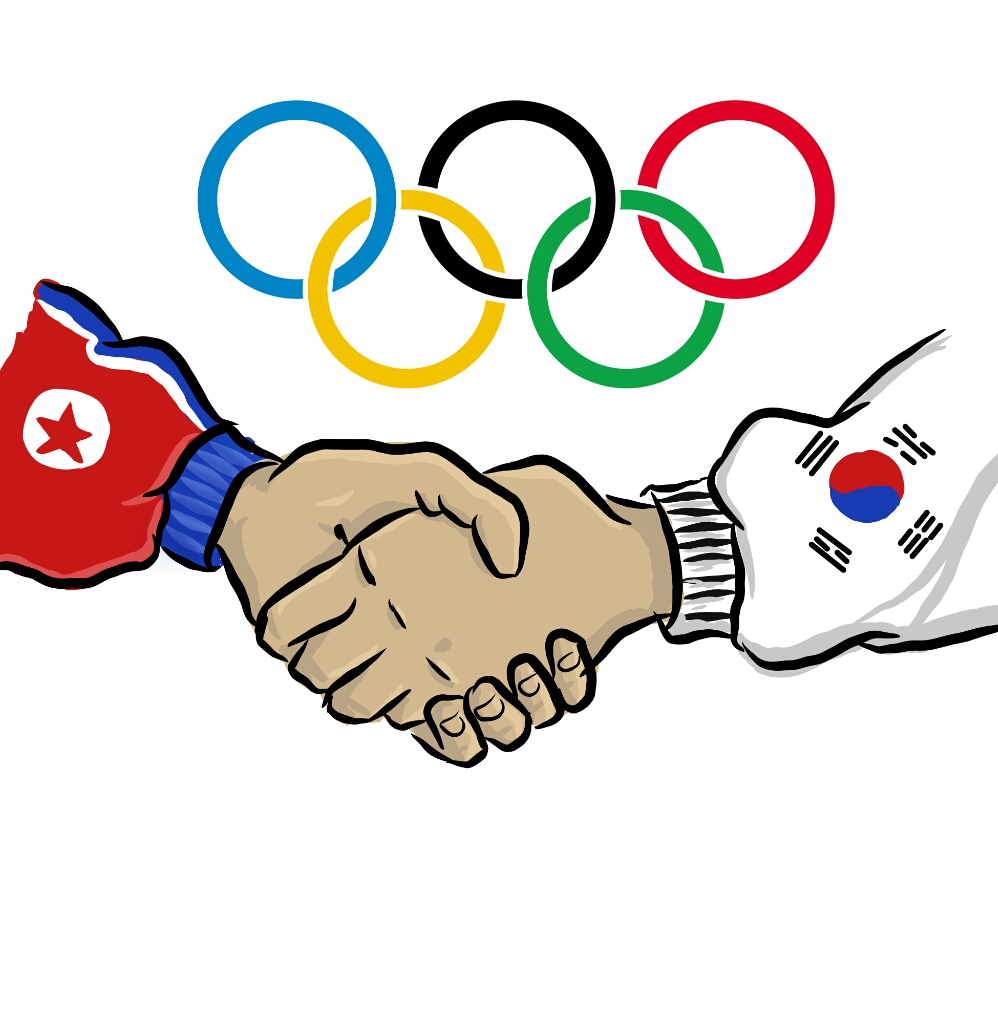![]()
The countries of North and South Korea have long been at odds with one another, and in recent months, the two have disagreed more than ever. Amidst extreme hostility, turmoil, confusion and multiple nuclear threats, a beacon of hope shines as the two will become one team during the upcoming Winter Olympics in Pyeongchang, South Korea.
Even if the peace is momentary, the countries have decided that a “diplomatic incident. . .would work in no one’s favor,” Jenny Town, assistant director of the U.S.-Korea Institute at Johns Hopkins School of Advanced International Studies in Washington, D.C., said. North and South Korean delegates have been in communication with one another throughout the past few weeks discussing the desire to interact peacefully at the Olympics. Delegates from both countries met face-to-face for the first time in two years at a Demilitarized Zone in between the two countries know as Panmunjom. The delegates discussed the potential of the defection—the desertion of one’s country in favor of an opposing one—of some North Korean athletes who do not agree with or endorse the current political climate of their country. Defection is a frequent source of tension between the two countries. “More than 30,000 North Koreans have made it to South Korea since the end of the Korean War,” according to USA Today.
To combat negative repercussions, North Korea decided to send delegates to the Games. Naturally, the South Korean government does not fully trust The North’s delegation, so they will not visit the Games without several restrictions. Analysts say that, “The North’s delegation will be carefully vetted and consist of regime loyalists,” which are individuals the South trust. The movements of The North’s delegates will be scripted, the delegates will always be together, and they will have no opportunity to slip away.
Representatives from each country have agreed that North and South Korean athletes will march into the opening ceremony under the same flag, North Korea will send a 230-member orchestra to the Games, and, for the first time ever, the women’s ice hockey team will consist of players from both countries.
Despite the cultural differences, political turmoil and unwillingness to act over the past few months, the Olympic Games have acted as an odd unifier for the countries when they needed it the most.
“At the end of the day, sports are more unifying than they are divisive,” senior women’s soccer player Annika Pollard said. “When other teams from other countries are playing each other, it automatically gives them something in common. Like North and South Korea, they have a common ground in sports…something [they] can relate to each other with. Sometimes that is all we have in common. It is a constant for every country.”
Heather Hughes, sophomore women’s ultimate frisbee member, echoed Pollard’s sentiment.
“I think sports are one of those common ground areas where you both know what to expect going into it, what effort you put in, you know the rules already, so it’s just one of those areas where you know the other person has put time and effort into preparing and so has the other person,” Hughes said. “You kind of have that bond with someone else. It is easier to see other people as human when you know the work they have put in, especially with preparing for the Olympics. Politics are not an issue.”
However, is the unification limited solely to the mountain top experience that is the Olympics?
“They are going to have to put effort in after it is over,” Hughes said. “There will be relationships formed, and people may start seeing eye to eye and changing their perspective. But when you go home and do nothing about that, it’s short term. [When North and South Korea] head back from the Olympics, if they want it to become long term, they will have to make an effort and continue talking about things they agree on and come to terms on some of those disagreements.”





